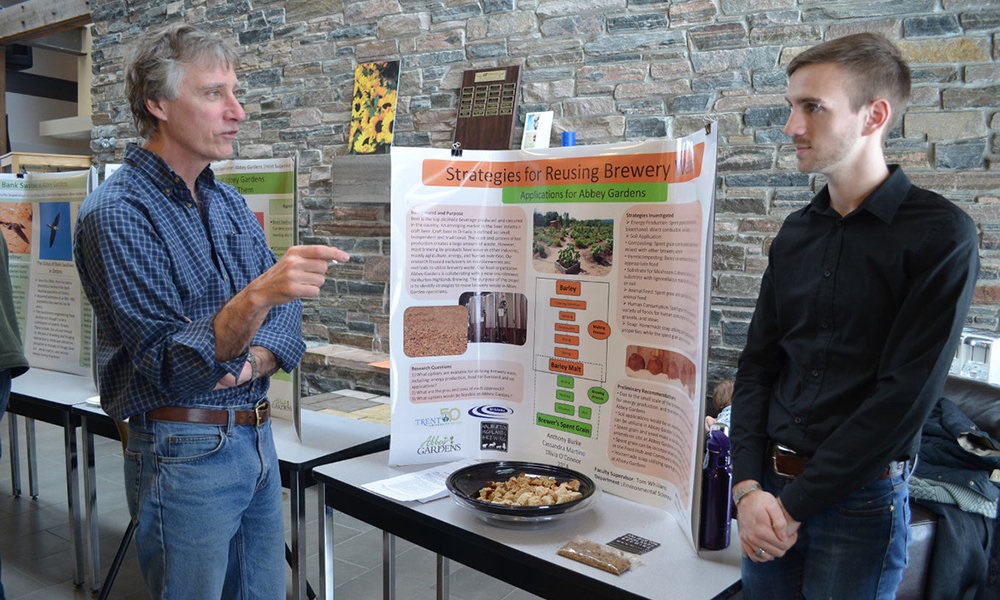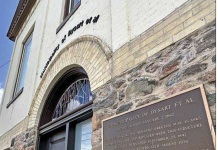Local-based research on lake health, the negative impacts invasive species can have on water bodies, and the importance of pollinators, will take centre stage at U-Links’ 32nd annual celebration of research March 25.
Taking place in-person for the first time in four years, the event will bring student researchers from Fleming College and Trent University face-to-face with community members that helped shape their chosen project. For years, U-Links has taken topics pitched by County residents and matched them with students to help identify issues, and find solutions, to various environmental, social, economic, and cultural concerns in the HighlandS.
The celebration provides a platform for students to present their findings, often after years of research.
“We feel it’s important to host this event so that we can showcase all the hard work the students are putting in to produce valuable information that can actually inspire change in our communities,” said Sadie Fischer, environmental program coordinator with U-Links. “It’s a really good way to bring people together and educate them on some of the most pressing issues we’re seeing in the County.”
There will be 20 projects featured this year. Fischer said all students will be in attendance to discuss their work, with three presenting their findings to the group.
Kaleigh Mooney has completed a thorough mapping of Eurasian Watermilfoil at Drag and Spruce lakes. The invasive plant thrives under the water surface and can impede the growth of a lake’s natural species and habitats, while exhibiting a nasty odour. There’s no known way to completely eradicate the plant, though Mooney, at last year’s virtual celebration, said she found weevils to be an effective way of limiting their spread.
“Kaleigh has spent several years researching this topic, so she is a good expert to lean on for information. She will be discussing how widespread this problem is at Drag and Spruce lakes, while pinpointing exactly where [the major growth areas] are,” Fischer said.
Zachary Weber and Imogen Bellinger will provide an assessment of benthic macroinvertebrate communities within Glamor Lake. This is a good indicator of overall lake health, as the number of animals and insects living on the bottom of lakes can change dramatically at varying levels of pollution.
Fischer noted U-Links actively monitors 24 lakes across the County through its benthic biomonitoring program, with assistance from Trent and Fleming students.
Caleb Brown will be discussing the different pollinators and native species that can be found along the Minden River Walk. His work has been crucial in helping the Haliburton County Master Gardeners develop an audio tour people can listen to while walking the trail, which the group hopes to release later this year.
This year’s keynote speaker is Tanner Liang, a water quality specialist with Kawartha Conservation, who will discuss the importance of ‘citizen scientists’ and the key role they can play in maintaining and improving the local environment.
“We have a great lineup this year, with lots of opportunity for learning,” Fischer said.
The celebration is taking place in the Great Hall at the Haliburton School of Art + Design March 25 from 1 to 3 p.m. To register, visit ulinks.ca. Admission is free.





